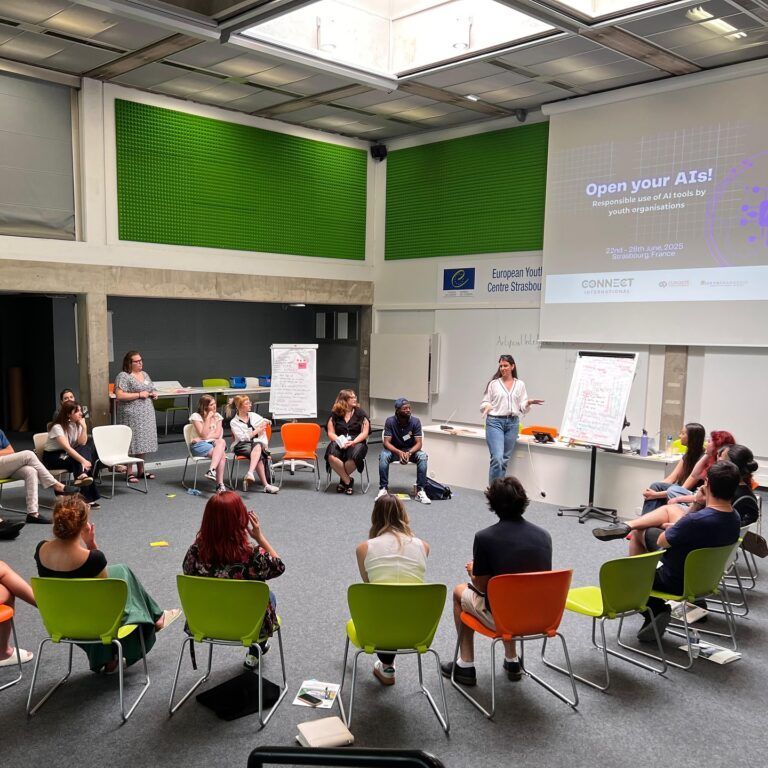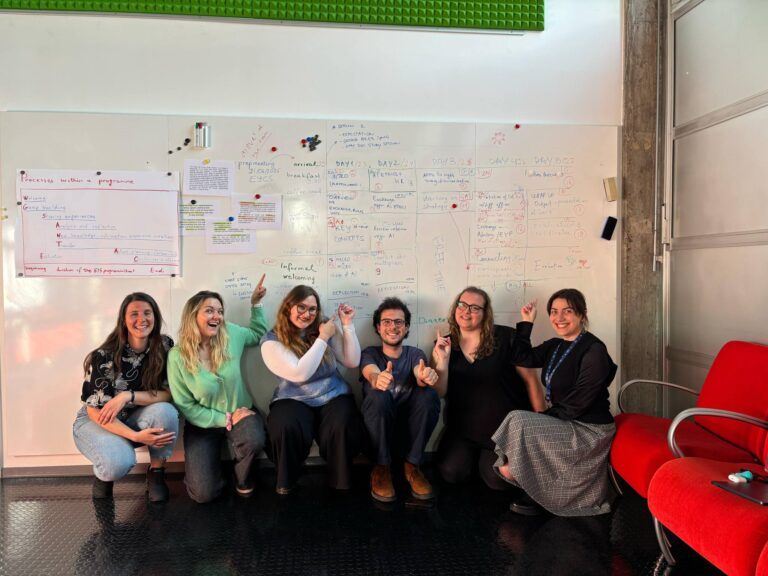The Platform of Civil Society Organizations in the Fight against Corruption responds to the recommendations of the State Commission for Prevention of Corruption (SCPC), presented at a public session of the SCPC, and conveyed through media outlets, within the framework of the anti-corruption review of the Law on Free Access to Public Information.
Instead of contributing to greater transparency, accountability, and the fight against corruption, the SCPC, through its alleged indications of “regulatory risks,” sends seriously worrying signals for the closure of institutions and creates opportunities for limiting the public’s right to know. Such recommendations not only undermine the role of the SCPC as a key institution for preventing corruption, but also directly open up space for new corrupt abuses, especially in the area of public procurement.
Reduced transparency–increased risks of corrupt and harmful public procurement
First, the SCPC recommends “reexamining the article regulating the obligation to publish all public procurement documentation. The SCPC believes that the term “all documentation” in relation to public procurement is not precisely defined, which may result in the publication of confidential information and the violation of the rights of third parties.”
The Platform points out that the application of the provision of the Law on Free Access to Public Information, the entire documentation pertaining to public procurements, concessions and public-private partnership agreements, (Article 10, paragraph 1, line 18) has so far enabled increased transparency and access to relevant documents by civil society organizations and media outlets. In this way, abuses committed in a large number of tender procedures for which court proceedings are being conducted were disclosed, but also possible corrupt and harmful public procurements were prevented.
The SCPC should also have taken into account that the protection of confidential data in public procurement is already regulated in the Law on Public Procurement (Article 30). We also point out to the SCPC that the Law on Free Access to Public Information regulates partial access, as well as provides for exceptions in cases where protection of information with a degree of secrecy is required. We remind the SCPC and the public that in January 20205 a regression was already made in the protection against corruption in public procurement with the amendments to the Law on Public Procurement in such a way that the administrative control of public procurement carried out by the Public Procurement Bureau was abolished. In conditions when, according to the assessments of all relevant international and domestic stakeholders, corruption in public procurement is widespread and with the historically highest state budget, new borrowing and daily indications of misuse of public money, the SCPC makes recommendations to limit transparency, thus undermining the role of a key institution for preventing corruption.
Recommendations with long-term negative consequences affecting independence
The SCPC provides guidelines for prescribing and specifying a procedure, as well as setting a deadline for the Assembly of the Republic of North Macedonia in cases where it determines the termination of the function and the dismissal of the Director of the Agency for Protection of the Right to Free Access to Public Information and the deputy, before the expiration of the mandate.
For the Platform, this recommendation is politically motivated because it was given immediately after an attempt by MPs in the Assembly of the Republic of North Macedonia to adopt amendments to the Law on Free Access to Public Information that envisaged the early dismissal of the Director of the Agency in the event that the parliamentary majority does not adopt the annual work report. And we point out to the SCPC that independent regulatory bodies, such as the Agency for the Protection of the Right to Free Access, and the SCPC itself, have a mandate longer than the mandate of elected officials in the executive branch, in order to ensure independence from parties and political influence. The given recommendation is already regulated in the Law on Free Access to Public Information that in the event of termination of the function or dismissal of the Director of the Agency, until the election of a new Director of the Agency, the function of Director of the Agency is performed by the Deputy Director, with all the authorities that the Director had. So the only argument for this recommendation by the SCPC cannot be “possible procrastination, selectivity, and uncertainty in the management of the institution.”
Proposals to introduce criteria that will reduce existing transparency
The SCPC refers to the obligation of information holders to regularly update a list of information they have and to publicly publish it. The SCPC considers that this provision “does not have precise criteria for which information should be published, nor in what manner and in what format, which leaves wide discretion to the information holders to decide what to publish and how. The SCPC considers that this is a “risk of limited transparency with the possibility of selective publication or concealment of information of public interest.”
The Platform is concerned that the SCPC found a risk of limited transparency in conditions where the Law on Free Access to Public Information establishes the form for publishing information and documents, namely: (a) information is published in any form that was created by or is held by the holder of the information in accordance with their competencies, and (b) access is provided to a document regardless of its physical form or characteristics—written or printed text, maps, diagrams, photographs, images, drawings, sketches, working materials, as well as audio, voice, magnetic or electronic, optical or video recordings in any form, including portable devices for automatic data processing with built-in or portable memories for storing data in digital form (Article 3). Additionally, it is concerning that the SCPC demonstrates a lack of understanding of the matter when it states that “there are no clear criteria for which information must be published.” The Law on Free Access establishes that all information created by and held by institutions, except for the exceptions (Article 6), is public information. It even introduces the concept of “proactive transparency,” which means that certain information must be published without being requested. What kind of criteria the SCPC recommends is unclear, and it is even more concerning that they speak about format without taking into account the announced start of the process for drafting the Law on Open Data and Reuse of Public Sector Information.
Overdue recommendations during an active process for amendments to the Law
The SCPC has determined that there is disproportionate liability for the misdemeanor provisions. Only a 500 euro fine is foreseen for the manager if they fail to appoint an official for information mediation and fail to provide information to the public about that person, but a 250 euro fine is also foreseen for the official for multiple misdemeanors–updating the list of information, assisting applicants, respecting deadlines for responding to requests. The SCPC recommended that the misdemeanor liability between the manager and the official for information in the Agency be clearly demarcated, in accordance with their actual responsibilities.
For the Platform, it is indicative that the SCPC points to alleged “regulatory risks” in the Law on Free Access to Public Information, for which the start of amending the Law was announced 5 months ago, i.e. on November 21, 2024, and public consultations are currently underway through ENER on the proposed amendments. The SCPC pointed to a disproportionality in the responsibility of responsible and official persons, but there are no proposals that specifically recommend it. We point out that civil society has been advocating for the existence of provisions for misdemeanor liability of responsible persons who unreasonably fail to provide access to information or prevent the official from implementing the second-instance decision to provide access to information.
Hence, the Platform believes that proposed solutions that may negatively impact the fight against corruption are unacceptable and contrary to European commitments to democratic, inclusive, and expert public policymaking.
Additionally, the Platform is concerned that the review of the Law on Free Access by the SCPC lacks key aspects of anti-corruption review, such as the involvement of multiple actors, i.e., during the preparation of the Report, they have not ensured cooperation with the civil society that would ensure independence and objectivity in the analysis.
We remind you that the anti-corruption review of (draft) laws is a preventive mechanism aimed at detecting, preventing, and minimizing the risks regarding the possibility of corruption and conflict of interest that may result in the implementation of laws. With such guidelines, the SCPC not only does not advance the system for preventing corruption, but also risks giving legitimacy to policies and practices that lead to the capture of institutions and the inaccessibility of information of public interest, which is currently information of a public nature.
We call on the competent institutions, especially the Ministry of Justice and the Parliament, to take into account the existing legal mechanisms and not give in to guidelines that limit transparency, which is a key tool in the fight against corruption.









